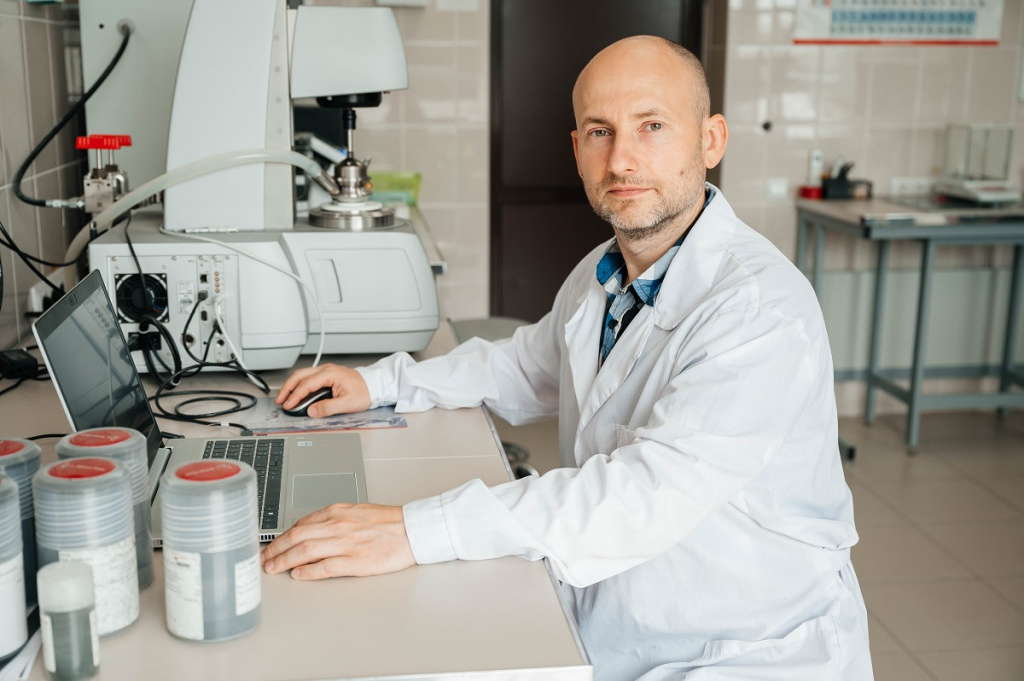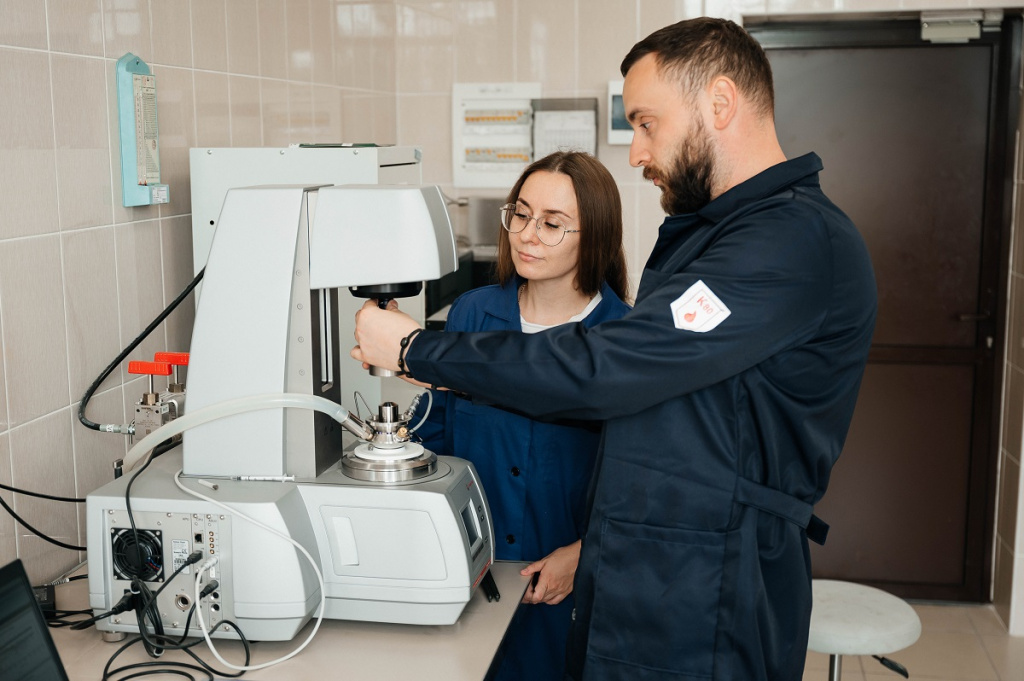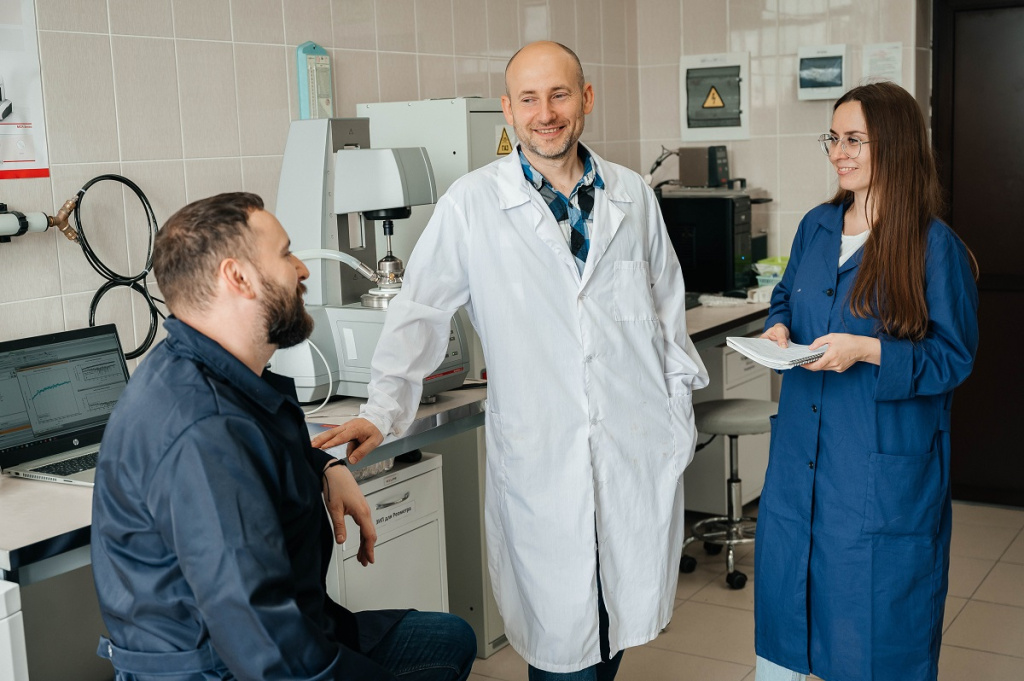The News Service of Tomsk Polytechnic University continues its coverage of the university's teams.
Two years ago, the Research and Education Center for Petroleum Chemistry and Technology officially opened within the School of Earth Sciences and Engineering at Tomsk Polytechnic University. The new unit integrated several areas: oilfield chemistry, drilling fluids, cement slurries, and petrophysical studies. The center was set up to facilitate communication with the university's industrial partners and to provide a comprehensive solution to research and engineering challenges in one place. Konstantin Minaev, Director of the Research and Education Center for Petroleum Chemistry and Technology, spoke about the demand for research and expertise of the Center among oil and gas companies and why more and more companies are coming to realize the importance of oilfield chemistry.
Our Center conducts a wide range of research related to chemical agents used in the oil and gas industry. We engage students and young scientists, including undergraduates and postgraduates, in our projects. International students, for example, from Yemen, Iraq, Iran, also take part in the projects. An undeniable advantage of the Center is that our expertise and capacity cover virtually the entire process flow: from primary formation tests and well construction to well operation and performance improvement. The pool of our customers already includes Gazprom Neft, Rosneft, Rosatom, Uralchem and a number of large oilfield service companies. We are still at the nascent stage, but we have already managed to bring in about 40 million rubles through contractual work since we began operations,
Petroleum chemistry
Moreover, the Center has spurred the development of oilfield chemistry at the university. Chemical agents are crucial in addressing such challenges as increasingly complicated field exploitation conditions, maintaining high oil recovery at depleting deposits, steadily growing volumes of oil transportation, prevention and elimination of operating problems. At the same time, only highly qualified specialists with a broad outlook based on fundamental knowledge in many adjacent fields of science can cope with the development of this area and find solutions to increasingly complex and large-scale technological challenges. These are not "pure" chemists, but all-round specialists possessing knowledge and expertise in chemistry, physics, mathematics, and petroleum sciences.
The cluster of competencies in oilfield chemistry is a response to the industry's demand. Large companies needed support in incoming inspection of chemicals that they further use in their operations. Artem Boev, Director of the School of Earth Sciences and Engineering, responded to this call. We are capable of conducting such studies, moreover, which is our undoubted advantage, under simulated close-to-real reservoir conditions. Generally speaking, oilfield chemistry methods are used to solve the most important task of increasing oil recovery. In this case, we can provide not only practical, but also consulting support. For example, we can recommend certain manufacturers or help to select an appropriate technology. In fact, we often dive into the subject together with companies. For each assignment, we study new compositions and technologies, for example, various acid compositions, bottom-hole treatment technologies, killing fluids. All this keeps the Center's team immersed in the most advanced projects in the industry, and gives a clear understanding the actual challenges it is facing,
"We can do better"
At the Center, we do not confine ourselves to oilfield chemistry alone. Our research focus, for example, covers drilling and slurry fluids used for cuttings removal, wellbore cleaning, hydrostatic pressure maintenance, and so on, as well as projects related to reservoir physics. Among the technological challenges that TPU scientists and engineers are striving to solve are the development of heavy killing fluids based on production waste from a large company, and the study of acid compositions for bottomhole formation zone treatment to solve the problem of reservoir contamination. It is worth noting that we select the optimal compositions for each particular well and certain subsurface conditions.
Our center virtually covers the entire process chain: from initial drilling-in, well construction to well operation. Moreover, if necessary, we can make our way from a test tube to a plant construction. The next milestone in our development is the creation of our own unique compositions from basic components to meet the needs of our partners. Another important area that we are often reached out to with is re-engineering. It is closely connected with import substitution. Due to the withdrawal of many foreign companies from the market, the industry is in need of developing domestic analogs of various components. We aim to make our formulations more effective than foreign ones. With our high-class chemists, we are capable of solving this problem. Our team is not only competent with testing equipment, but can also synthesize, develop complex compositions, and study them,

More articles about faculty and scientists of Tomsk Polytechnic University:
Elena Stepanova: Why Chemist is Akin to Writer and How to Set Up Molecular Design Laboratory
Professor Potylitsyn: Black Diamond, Two Rectors and Team
